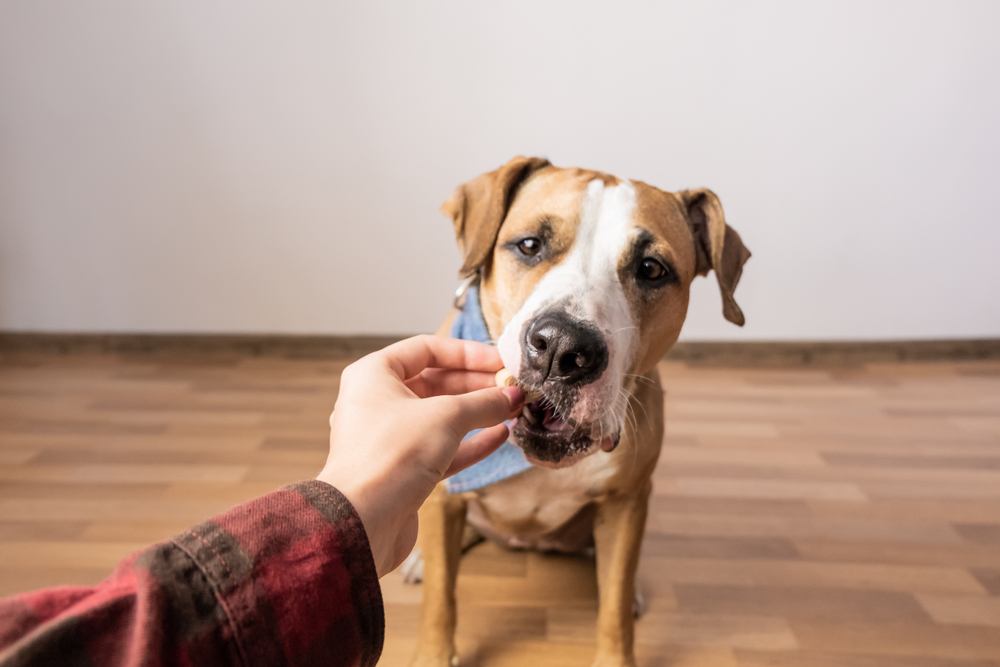Heartworm Disease 101: Protecting Your Pet’s Heart

Spring has sprung, and with the rising temperatures and inviting weather, many pet owners are spending more time outside with their four-legged companions. Your feline friends may also be spending more time outdoors, or sunbathing on their catios. But, springtime temperatures are also inviting for pesky parasites, including mosquitoes, whose blood-sucking, biting habits can be dangerous, since they can transmit heartworms to dogs, cats, and many other wild animal species. Our Bayside Animal Hospital team wants to ensure your pets are protected from a potentially fatal heartworm infection. Here are our answers to common questions.
How does my pet become infected with heartworms?
Heartworm infections in pets are caused by the worm Dirofilaria immitis, which is transmitted by more than 70 mosquito species throughout the United States. Mosquitoes serve as hosts for young heartworms (i.e., microfilaria). Once the young heartworms mature to an infective stage, usually in about two weeks, they can enter your pet when the mosquito bites. Once inside your pet, the worms circulate throughout your pet’s vascular system for approximately seven months, maturing into adult heartworms that can grow to 12 inches long. Adult heartworms can survive inside an infected dog’s body for up to seven years, and inside infected felines for several years. Outdoor pets obviously have an increased chance of infection, but mosquitoes can easily travel indoors, and only one bite from a heartworm-carrying mosquito can infect your pet. Previously, heartworm infections were considered rare in California, but because pets are traveling and mosquitoes are resilient, every U.S. state has now reported heartworm disease cases in pets. In fact, more than 1 million U.S. pets are infected each year throughout all 50 States.
What are heartworm disease signs in pets?
Heartworm disease signs may not be present during your pet’s early stages of infection. Cats rarely show clinical signs, and sudden death is often the first infection sign, although infected cats may exhibit a cough, respiratory distress, and vomiting. Severity of signs depends on the infection load, activity level, and overall health of your pet. Pets with underlying health conditions, such as heart disease, may show more severe signs. Heartworm disease signs in dogs may include:
- Decreased appetite
- Weight loss
- Cough
- Lethargy
- Exercise intolerance
- Difficulty breathing
How is heartworm disease diagnosed and treated in pets?
Bring your pet for a veterinary examination if you suspect they have been exposed to mosquitoes, or if they are showing heartworm disease signs. Infected dogs may have 30 or more worms residing in their heart and lungs, while cats may have only a few worms because they are not considered an ideal host. For dogs, we likely will recommend a blood test to detect heartworm infection. In cats, diagnosis can be challenging, and if our veterinarian suspects your feline friend is infected, they may need several blood tests to confirm an infection. Additional tests may include:
- Blood work to test organ function, and presence of inflammation
- X-rays to examine heart shape
- Ultrasound to examine heart structure and function
Heartworm disease is a progressive, life-threatening disease, and early detection is vital for a positive treatment outcome in dogs. No treatment exists for cats infected with heartworms, although regular veterinary care and medications to decrease inflammation can improve your cat’s quality of life.
In dogs, heartworm disease treatment involves several doses of medication that is administered with an injection deep into your pet’s lumbar muscles, to kill the adult heartworms. Treatment can cause side effects including swelling, pain, and decreased appetite, and comes with complication risks, depending on the severity of infection and your pet’s activity level. Dogs also are at risk for clots or blockages from dead worm pieces, and must therefore remain quiet, calm, and exercise-restricted for at least four weeks while undergoing treatment. In some cases, our veterinarian may recommend a light sedative, or an extended hospital stay, to reduce the chance of complications.
How is heartworm disease prevented in pets?
Year-round veterinary-prescribed heartworm prevention is the safest, easiest, and most cost-effective means to prevent this fatal disease. Indoor-only pets should also receive year-round prevention, because only one bite from an infected mosquito can cause this potentially fatal disease. The American Heartworm Society recommends that your pet receive a monthly preventive, and be tested every 12 months. Young pets should begin prevention at 6 weeks of age, and be tested at 6 months of age, and again at 12 months. Then, annual testing will ensure your pet is on the proper dose of heartworm prevention, and will aid in early disease detection.
Call our Bayside Animal Hospital office if you have any questions about heartworm disease and your pet, or schedule an appointment for their annual heartworm test, to ensure they are protected year-round.


